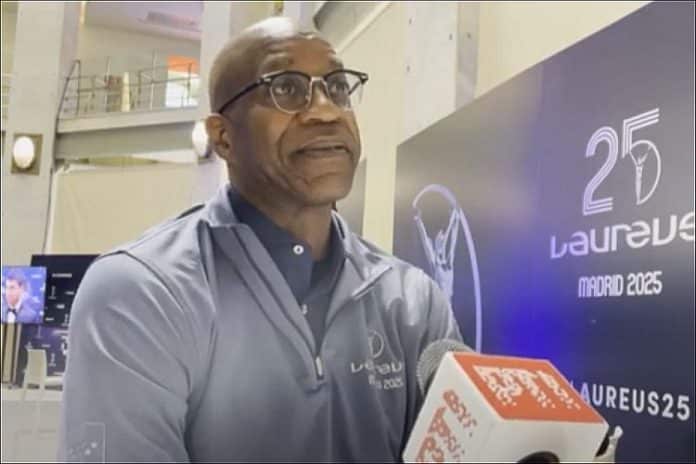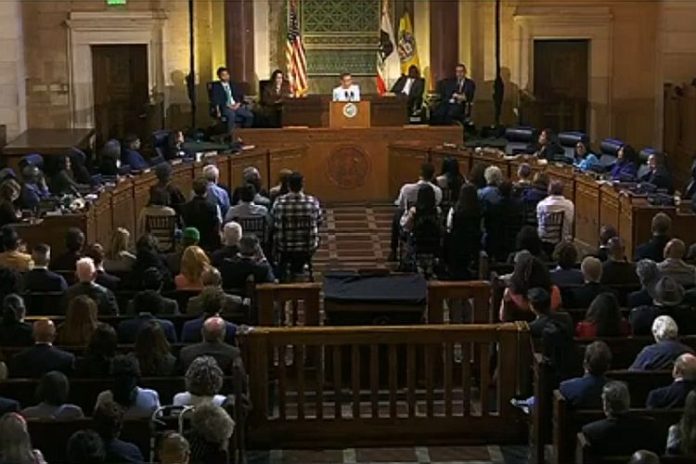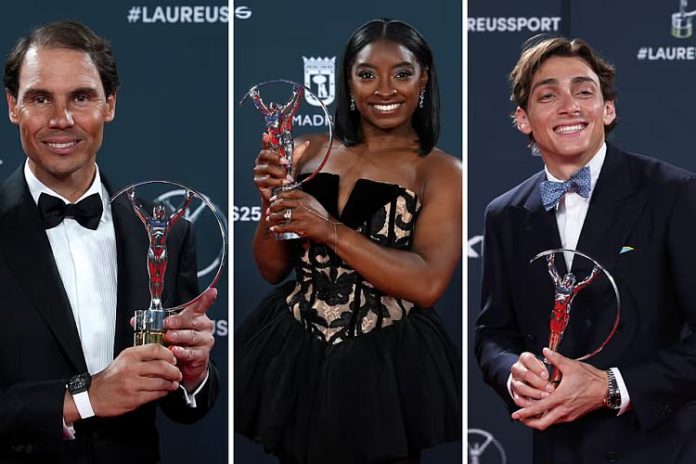★ The Sports Examiner: Chronicling the key competitive, economic and political forces shaping elite sport and the Olympic Movement.★
★ To get the daily Sports Examiner Recap by e-mail: sign up here! ★
≡ MOSES TALKS MONEY ≡
Speaking on the sidelines of the Laureus World Sports Awards in Madrid (ESP), two-time Olympic hurdles champion Edwin Moses of the U.S. gave a fascinating interview to the Press Trust of India, mostly dealing directly with the future of track & field.
Asked about what International Olympic Committee President-elect Kirsty Coventry (ZIM) needs to focus on, Moses went straight – with his usual clarity – straight to the money:
“I think the main concern for me would be compensation of athletes, because you have professional athletes from golf, tennis, basketball, soccer coming into the Olympic Movement and then you have your classical sports like track and field, gymnastics, swimming and these people are still uncompensated.
“So I think that’s what the IOC really needs to deal with to really make it fair for the athletes who have to spend their own money or really, really sacrifice just to go to the Olympic Games and win the same the same medal that someone who’s making $20 million a year in golf or basketball or even more, compete for the same medal.
“I think that they need to solve that problem. You know, World Athletics in Paris did it [paid $50,000 prize money to the winners], like it’s still not enough.
“You know, when I was running, in 1978, to win the men’s Wimbledon championship was $80,000. Tennis unionized, track and field didn’t.
“American basketball players in 1981-82; Kareem Abdul-Jabbar was making $1.2 million a year and they thought that was blasphemy. They thought that that was vulgar, to pay a professional athlete that much. That was like $1.2, $1.5 million a year. Their union became strong, look at where their salaries are now.
“Track and field did nothing. Tennis unionized, football, baseball, all those sports that have really strong unions, they’re making millions of dollars a year. And Olympic sport has been consistently absent in that crew, in that endeavor.
“Every now and then you have a big star like a Usain Bolt, who’s really able to have a global package and whatnot. But in 1983-84, before the Olympic Games, that was me. I was making a lot of money during that time because they loosened up the amateur rules so track and field is going to continue to be behind until they unionize and I think there’s people that don’t want that to happen, because that would have implications for a lot of sports.
“That’s my personal opinion.”
Moses, now 69, was also asked about the transgender debate raging now and opined:
“I think that’s an issue for the women in sports to decide what kind of sport they want to have. I’m a man, I can’t say.”
He noted that there are separate issues of biology and dealing with transgenders in society, and added:
“I personally wouldn’t want my daughter to compete against someone who’s been a man, and some people say that there’s no difference – trans men, trans women – there’s no difference, but I don’t know if there’s a single case of women going to compete in men’s sports, the reverse way, so you have to ask your question why is that the case, because this is happening quite frequently
now. …
“I think that’s for women to decide at the end of the day – the women who compete in sports – they are the ones that need to make a decision on that issue, not men.
“That’s my personal feeling.”
Moses was also asked what it will take for India, now the world’s most populated country, to become a bigger medal-winner in sports:
“They have to spend the money on coaches and infrastructure.
“There’s a lot of other countries in the world, much smaller, much less the financial capabilities of India that produce good athletes. So, there the infrastructure is just not there to support athletes and take Olympic sports seriously.
“They have certain areas in which they’re really really good at, but in general it’s probably just the infrastructure, coaches, stadiums and dedication to athletes, to help athletes become better athletes.”
He asked, is there value in India to develop sports that people are not as familiar with? Or will interest just remain with the already-popular sports like cricket?
¶
★ Receive our exclusive, weekday TSX Recap by e-mail by clicking here.
★ Sign up a friend to receive the TSX Recap by clicking here.
★ Please consider a donation here to keep this site going.
For our updated, 694-event International Sports Calendar for 2025 and beyond, by date and by sport, click here!




























